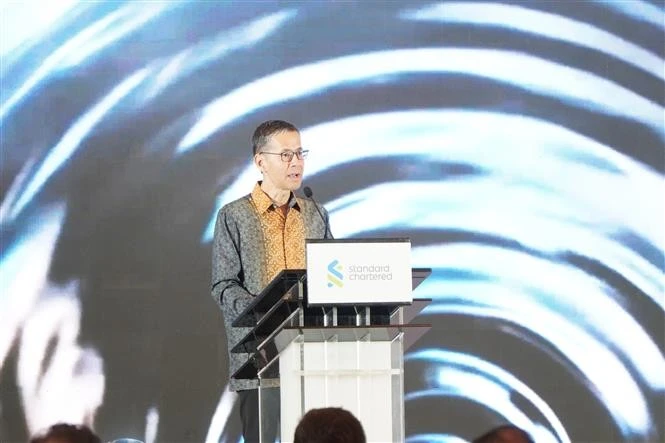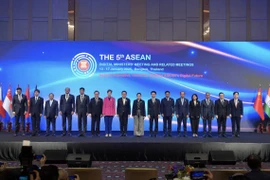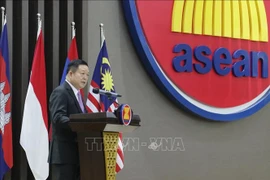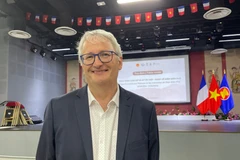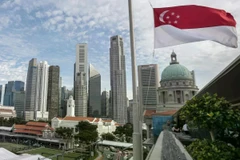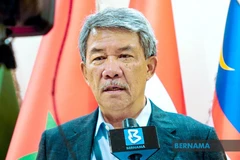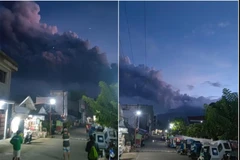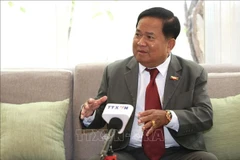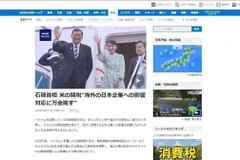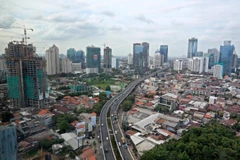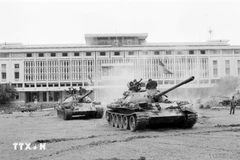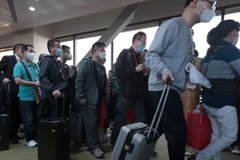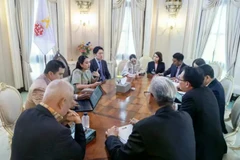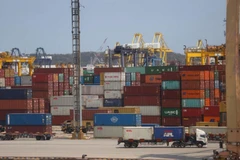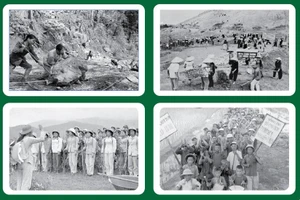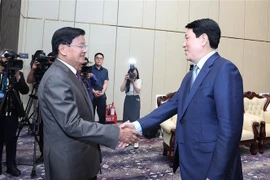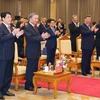Jakarta (VNA) – Standard Chartered Bank Indonesia on January 21 hosted a seminar on the 2025 economic outlook, with the attendance of ambassadors, representatives of multinational corporations and international organisations, regional and international economic experts, as well as financial and banking businesses in Indonesia.
The seminar focused on discussions about the regional and global economic situation, highlighting the challenges and opportunities that nations are currently facing.
Patrick Lee, CEO of Standard Chartered for Singapore and the Association of Southeast Asian Nations (ASEAN), underscored the bank's 160-year legacy and its unique position as the only international bank operating in all ASEAN markets. He reaffirmed Standard Chartered’s commitment to fostering sustainable development in the region.
Lee pointed out that foreign direct investment (FDI) remains a crucial driver of growth in ASEAN, contributing significantly to the diversification of supply chains and consumer markets. As the region continues to develop, local economic pillars are also playing an increasingly vital role in overall growth. In response, Standard Chartered Indonesia has been reinforcing its regional presence by promoting innovation, supporting sustainable development, and strengthening its connections with the bank’s global network.
Standard Chartered has maintained a long-standing presence in Jakarta, offering a diverse range of financial services, including personal and corporate finance, and investment solutions tailored to the Indonesian market.
Indonesia's Minister of Infrastructure and Regional Development, Agus Harimurti Yudhono, highlighted that with over 17,000 islands and a population of 280 million, the country faces significant geographical and demographic hurdles. He emphasised the need for not only robust infrastructure but also innovative and sustainable solutions to bridge these gaps.
To achieve the government’s target of 8% economic growth, the minister outlined five key priorities, namely land use and spatial planning, public works development, housing initiatives - including affordable housing, expansion and modernisation of transportation networks (road, sea, and air) to enhance connectivity, and ensuring equitable development across all regions.
Rino Donosepoetro, CEO of Standard Chartered Cluster for Indonesia and ASEAN markets, expressed his optimism about Indonesia's future under its new government. He highlighted President Prabowo’s ambitious goal of achieving 8% economic growth in the coming years, noting that the country is moving in the right direction.
Donosepoetro emphasised Indonesia’s vast potential and Standard Chartered’s pivotal role in attracting foreign investors while connecting its global clients from China, North Asia, Europe, the US, the Middle East, and South Asia to the dynamic ASEAN markets./.
